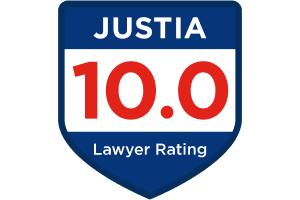Three Liability Planning Tips for Physicians That Anyone Can Use!
Whether you are a physician or not, you probably know that the practice of medicine is a profession fraught with liability – but it seems even the act of walking out your front door has substantial risk these days. Seriously, the normal person has many of the same risks as a physician! It’s not just medical malpractice claims either – auto accidents, defaming someone, neighbor encroachment, property damage, employment related issues, careless business partners and employees, contractual obligations, and a whole host of personal liabilities add to the risk assumed by a physician in private practice.
Unfortunately, in our litigious society, these liability risks are not unique to physicians. Business owners, financial planners, CPA’s, insurance professionals, board members, real estate investors, and retirees need to protect themselves from a variety of liabilities too.
Below are three liability planning tips anyone – physicians and non-physicians alike – can use to protect their hard earned money. You may be surprised at what this attorney is recommending as the first line of defense against liability.
Tip #1 – Insurance is the First Line of Defense Against Liability. Yes, that’s right, attorney Ben E. Connor, founder of The Connor Law Firm, PLC, is recommending insurance to your clients, and to you, first! That’s before all the protective trusts that my firm does. Yes, you read it correctly! It’s insurance first!
Liability insurance provides a source of funds to pay legal fees as well as settlements or judgments. This is a non-exclusive list but the types of insurance you should have in place, or at least consider, includes:
- Homeowner’s insurance & umbrella policy
- Property and casualty insurance
- Excess liability insurance (also known as ‘umbrella’ insurance)
- Automobile and other vehicle (motorcycle, boat, airplane) insurance
- General business insurance
- Professional liability insurance
- Directors and officers insurance
Tip #2 – State Exemptions Protect a Variety of Personal Assets From Lawsuits
Each state has a set of laws and/or constitutional provisions that partially or completely exempt certain types of assets owned by residents from the claims of creditors. While these laws vary widely from state to state, in general you may be able to protect the following types of assets from a judgment entered against you under applicable state law:
- Primary residence (referred to as ‘homestead’ protection in some states)
- IRAs — Qualified retirement plans (401Ks, profit sharing plans, money purchase plans, IRAs). CAUTION: Last year (2014) the U.S. Supreme Court ruled that when you die, and pass your IRA on to your children/grandchildren, it is no longer protected against your children/grandchildren’s creditors or divorce under most conditions. Call me for a free consultation on the full ramifications of this astonishing decision.
- Life insurance — Arizona exempts death benefit from decedent’s creditors under certain situations. See A.R.S. 20-1131 & 20-1132.
- Annuities
- Prepaid college plans
- Section 529 plans
- Disability insurance payments
- Social Security benefits
Tip #3 – Business Entities Protect Business and Personal Assets From Lawsuits
Business entities include partnerships, limited liability companies, and corporations. Business owners need to mitigate the risks and liabilities associated with owning a business, and real estate investors need to mitigate the risks and liabilities associated with owning real estate, through the use of one or more entities. The right structure for your enterprise should take into consideration asset protection, income taxes, estate planning, retirement funding, and business succession goals.
Business entities can also be an effective tool for protecting your personal assets from lawsuits. In Arizona, assets held within a limited partnership or a limited liability company are protected from the personal creditors of an owner in many cases. In many cases, the personal creditors of an owner cannot step into the owner’s shoes and take over the business. Instead, the creditor is limited to a ‘charging order’ which only gives the creditor the rights of an assignee. In general this limits the creditor to receiving distributions from the entity if and when they are made.
Final Advice for Protecting Your Assets
Liability insurance, exemption planning, and business entities should be used together to create a multi-layered liability protection plan. The Connor Law Firm, PLC, is experienced with helping physicians, business owners, board members, real estate investors, and retirees create and–just as important–maintain a comprehensive liability protection plan. Please call our office if you have any questions about this type of planning.
If I can assist you in any way please contact me.
Ben E. Connor
Attorney at Law
The Connor Law Firm, PLC
9777 N. 91st Street
C-103
Scottsdale, Arizona 85258
800-679-6709 (toll free)
480-296-2069 (local)
Ben@ConnorLegal.com
www.connorlegal.com
Lic. Arizona & Utah







